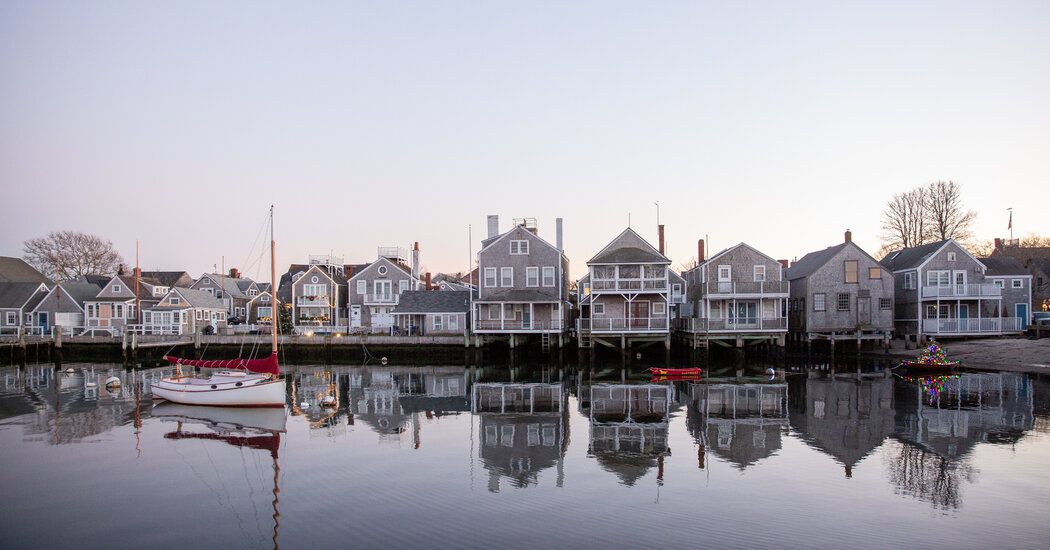
On an island where the average home sale topped $4 million last year, Ginger Andrews’s scallop shanty is a golden ticket.
If she had any inclination, Ms. Andrews, a fourth-generation resident of Nantucket, could sell the waterfront structure next week for a life-changing amount of money. The prospect is intoxicating — at least to some of her acquaintances.
“They’ll say, ‘You could have a chef!’” Ms. Andrews said. “‘Or, ‘Don’t you want to travel around the world?’”
But she has a different goal: defending her weatherworn, 19th-century shack against buyers who would gut its unadorned interior, install modern layouts and luxuries, and erase a gritty heritage that has already mostly vanished from the island, 30 miles off the Massachusetts coast.
With no children to pass the property on to, Ms. Andrews has turned to a little-known legal maneuver that is having a moment on Nantucket and elsewhere in New England. She is attaching a preservation restriction to her property deed, requiring that any future owner retain the structure’s essential characteristics. She also intends to ensure that scallopers, who have long shucked their catch in its narrow kitchen, can continue using the building, the last working scallop shanty on Old North Wharf.






